
Here is what the latest forecasts suggest about how the UK economy is faring against a range of historical benchmarks, including levels of inflation, tax and living standards.
– Largest fall in disposable income since records began
The rise in the cost of living means real household disposable income per person is estimated to have fallen by 2.2% in 2022/23, according to the Office for Budget Responsibility (OBR).
This is a smaller drop than previously forecast, but it is still the largest fall in a single financial year since comparable records began in 1956/57.
Overall, living standards are likely to be 3.5% lower in 2024/25 than before the Covid-19 pandemic.
Household disposable income is forecast to fall in three successive years, with the 2.2% drop in 2022/23 followed by declines of 0.8% in 2023/24 and 0.4% in 2024/25.
It is then set to return to growth, with a rise of 1.3% in 2025/26.
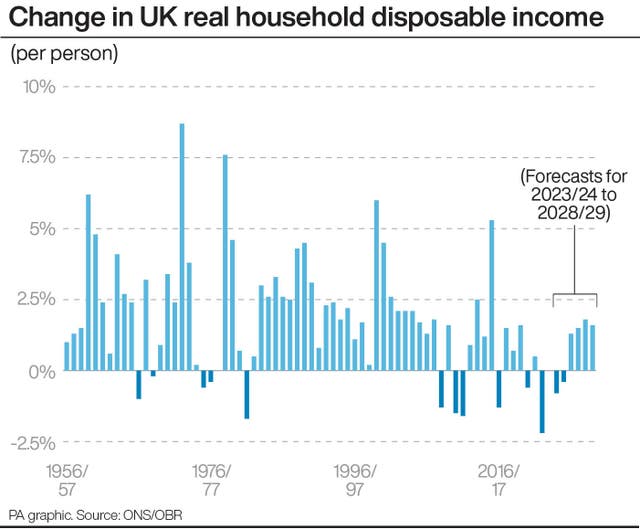
– Highest tax burden (as percentage of GDP) since end of the Second World War
The OBR forecasts the overall tax burden in the UK will rise to the equivalent of 37.7% of GDP (gross domestic product, or the total value of the economy) by 2028/29.
This is the highest level since the Second World War.
It is also 4.5 percentage points higher than before the Covid-19 pandemic.
Had Jeremy Hunt not announced tax changes in his autumn statement, including a cut in the rate of national insurance contributions, the tax burden for 2028/29 would have been forecast to climb even higher, to 38.3%.
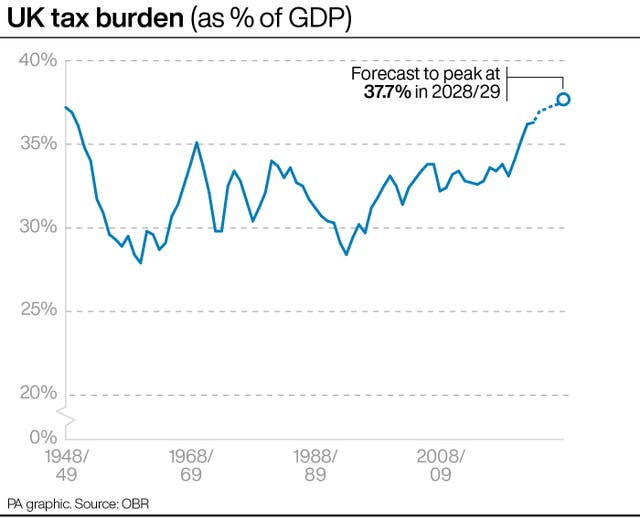
– Highest debt (as percentage of GDP) since 1960/61
The headline measure of public sector net debt in the UK, which includes the Bank of England, is forecast to reach the equivalent of 98.6% of GDP in the financial year ending March 2025.
This would be the highest level since the end of the financial year 1961/62, when debt stood at 99.4%: a time when Harold Macmillan was Conservative prime minister, there were only two television channels in the country, and The Shadows were top of the singles chart with the instrumental Wonderful Land.
After 2024/25 the forecast starts to fall, reaching the equivalent of 94.1% of GDP in 2028/29, its lowest level since 2019/20.
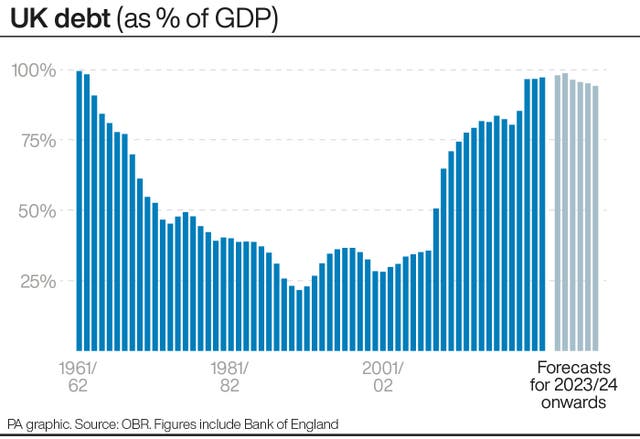
– Annual rate of inflation has peaked
Inflation in the UK has peaked and will drop sharply over the next couple of years, the OBR forecasts.
After reaching 9.1% in 2022 – the highest level since 1981 – the annual rate of inflation is likely to be 7.5% this year, before falling to 3.6% in 2024 and 1.8% in 2025.
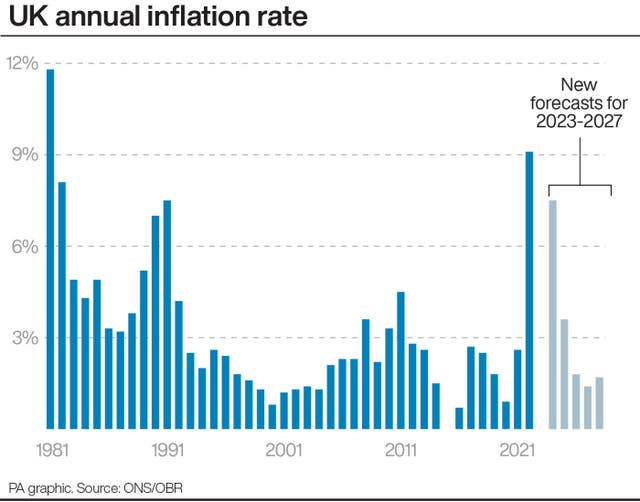
– National insurance cut to lowest rate in 20 years
The fall in employee national insurance contributions from 12% to 10% in January 2024 will take the rate to its lowest level since the start of 2003.
It is the second time in two years the rate of contributions has been cut.
They were reduced from 13.25% to 12% in November 2022 – although the 13.25% rate had only been in place since April 2022.
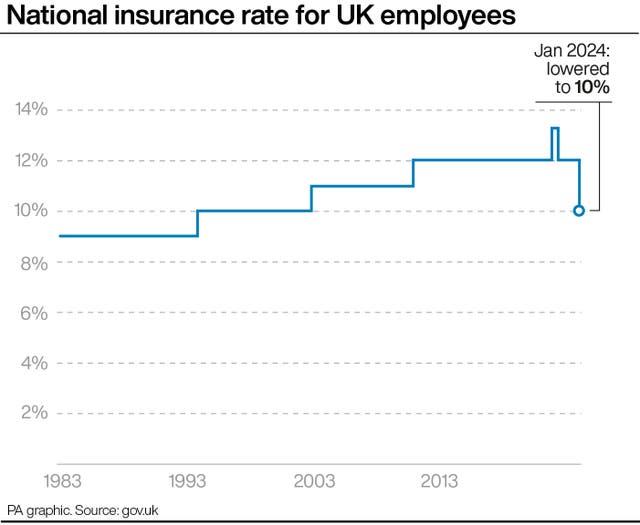


Comments: Our rules
We want our comments to be a lively and valuable part of our community - a place where readers can debate and engage with the most important local issues. The ability to comment on our stories is a privilege, not a right, however, and that privilege may be withdrawn if it is abused or misused.
Please report any comments that break our rules.
Read the rules hereLast Updated:
Report this comment Cancel